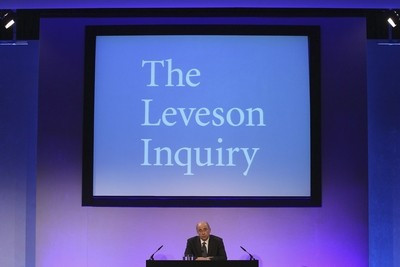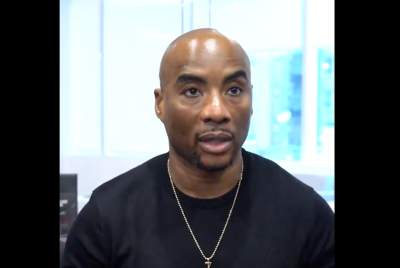Ed Miliband v Mail: Don't Blame 'Rogue Reporter' as Labour Leader Hints at Leveson Link

Ed Miliband has widened his battle with the Mail group of newspapers by suggesting for the first time there are parallels with the News of the World phone hacking affair which led to the Leveson inquiry into the "culture, practices and ethics" of the press.
Speaking during a series of interviews, the Labour leader said the group's proprietor Lord Rothermere needed to take a "long, hard look at the culture and practices" in his newspapers and the way reporters worked.
And, after the Mail on Sunday suspended two journalists in the row over gatecrashing a memorial for Miliband's uncle, he declared it was not good enough to blame "one rogue reporter or one rogue features editor".
That, of course, was the original defence made by the Murdoch newspaper when it attempted to close down the phone hacking scandal and identified just a single reporter and a private investigator as the culprits. Miliband won much public support when he took on the Murdoch empire over the affair and there are suggestions he is now attempting the same with the Mail group.
Miliband added: "I hope what Lord Rothermere will do is look at the wider culture and practices at the Daily Mail and Mail on Sunday because I don't think it's an isolated incident".
And he said he wanted to know how these practices were allowed to happen and that he was "interested in the many other families who are not in public life who have had similar experiences".
However, he rejected suggestions from Labour's John Mann and others, that the attack on his late father, Ralph, as a man who "hated Britain" was antisemitic.
That particular allegation saw the Mail's City Editor Alex Brummer not only refusing to apologise but claiming: "I think there are people out there who need to apologise to us", indentifying former Labour leader Neil Kinnock in particular for suggesting the original piece was antisemitic.
The latest remarks from Miliband suggest he is unwilling to draw a line under this affair and that, far from being ready to accept the Mail on Sunday's apology or any future, unlikely, apology from Daily Mail editor Paul Dacre, he wants to widen the issue.
There are significant dangers in this strategy. Until now he has won overwhelming support from the public and politicians across the spectrum although senior Tories, including the prime minister, have been careful not to attack the Mail directly.
If by his latest move, Miliband appears to be using the incident to press for new press regulations at just the moment the post-Leveson review is about to re-start he may find some of those newspapers and politicians backing away.
Although he insists he is not talking about regulation, some fear that is exactly what is behind his latest remarks. And others believe Miliband has now turned the issue into a political campaign rather than a personal matter, which could backfire.
Meanwhile the Daily Mail's editor Paul Dacre is under increasing pressure to break cover and speak publicly about the affair instead of putting up members of staff to defend the original article.
The latest have included Brummer and columnist Quentin Letts, both of who flatly refused to apologise for the offending piece describing Miliband Snr as a man who hated Britain.
Letts found himself under attack after, in effect, repeating the claim, stating Ralph Miliband had been furious that Britain won the Falklands War.
"He wanted us to lose the Falklands War. Is that the behaviour of a man who loves his country? I'm not sure it is," he said on BBC's Question Time.
But political director of the Huffington Post website and author of a biography of Ed Miliband, Mehdi Hasan, won a huge cheer of support from the same audience when he said: "Let's have the debate about who hates Britain more.
"It isn't a dead Jewish refugee from Belgium who served in the Royal Navy, it's the immigrant-bashing, woman-hating, muslim-smearing, NHS-undermining, gay-baiting Daily Mail."
© Copyright IBTimes 2025. All rights reserved.






















